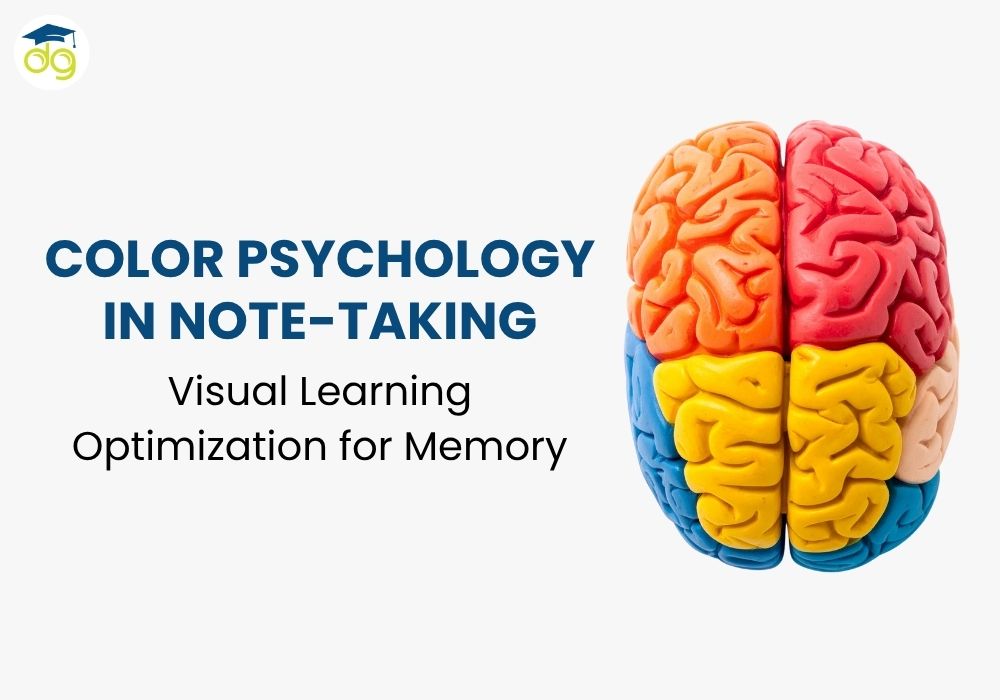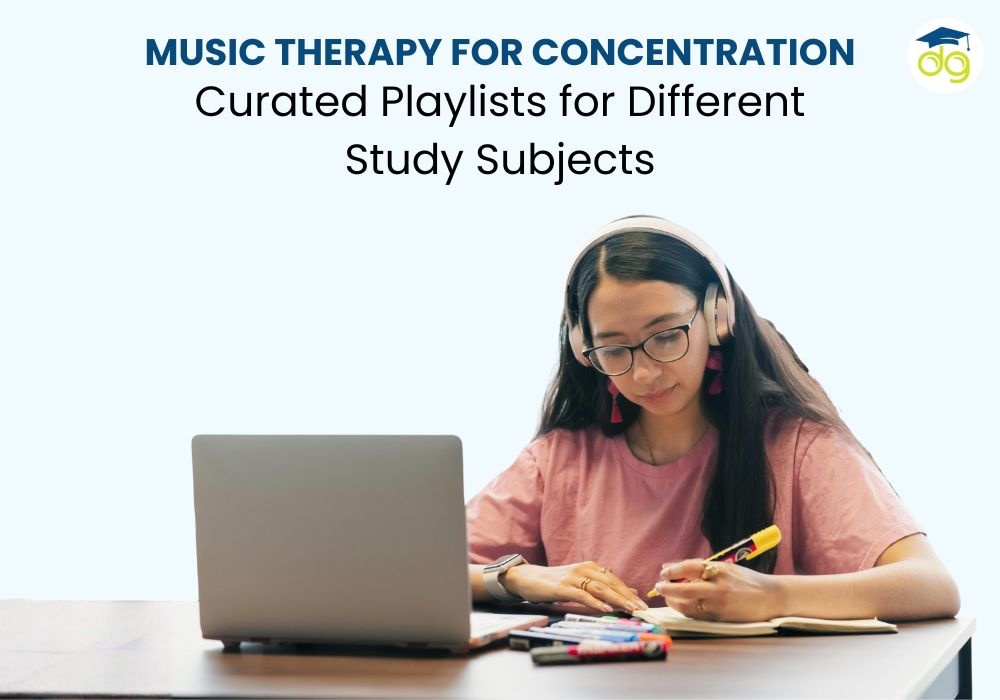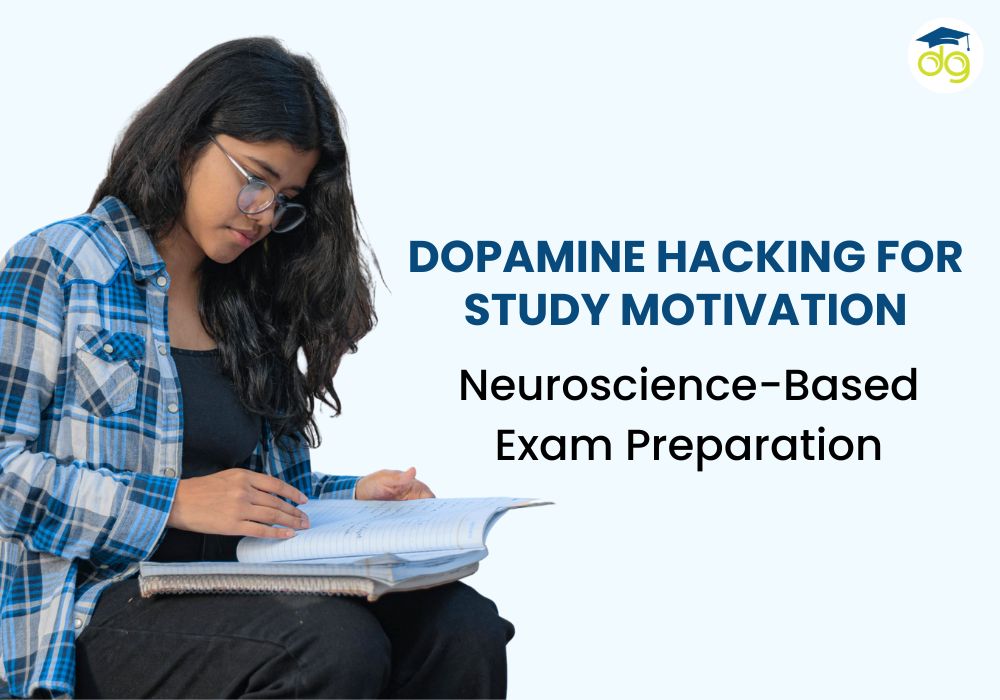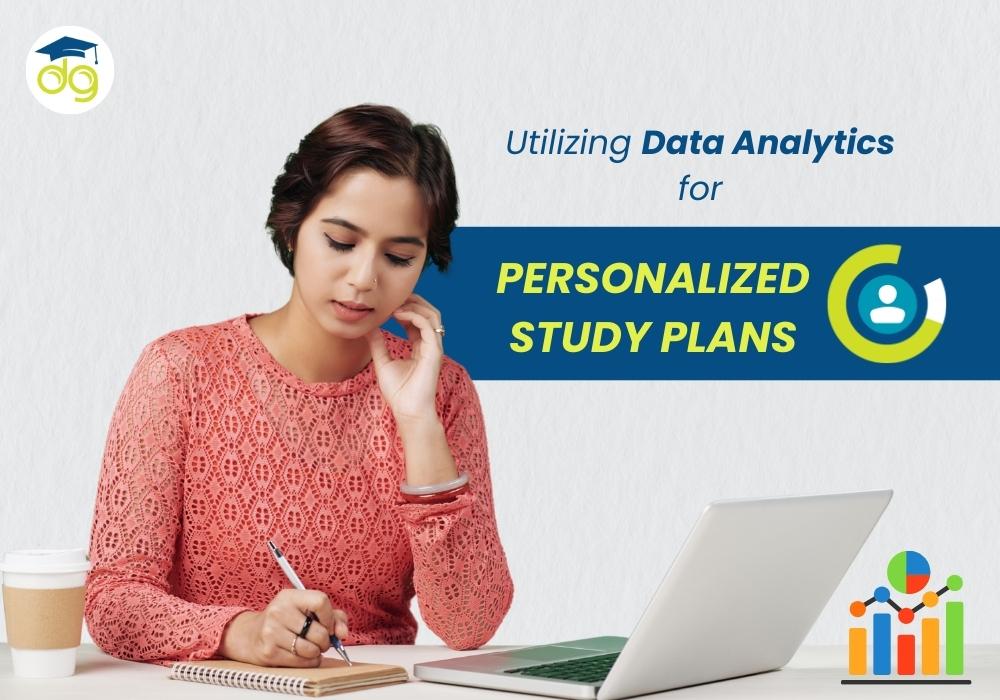Utilizing Data Analytics for Personalized Learning and Study Plans
Enhance student performance with data-driven, customized study plans.
The educational system is experiencing substantial changes because data analytics has become integrated into its structure. The traditional educational approaches do not adapt to individual student requirements; thus, students fail to meet their learning goals and demonstrate reduced engagement.
Institutions can design specific study plans through data analytics because this methodology understands the individual learning attributes of each student. When applied to educational contexts, this method, known as the data-driven learning strategy, enhances results while improving learning quality.
The following blog discusses how adaptive learning analytics generate tailored study programs in addition to demonstrating performance analytics advantages while demonstrating how educational technology and AI systems impart new personalized learning methods.
The Role of Data Analytics in Personalized Education
1. Understanding Data-Driven Learning Strategies
The educational process of data analytics involves data collection and analysis followed by student data utilization for maximizing student learning. Educational institutions use machine learning approaches and predictive modeling in combination with algorithms to create individualized learning programs for students.
Key components include:
Student Performance Analytics: The acquisition of student-related data includes their test scores, together with assignment completion rates plus attendance records, as well as engagement metrics. Educators use these metrics to detect patterns that lead them to make well-informed choices for delivering better results.
Learning Analytics for Personalized Education: Learning analytics utilize digital learning tool tracking methods to monitor educational interactions between students, including their habit patterns, content activity metrics and duration data. Learning outcomes from this information serve as a foundation for developing specialized intervention methods that increase educational success.
Predictive Analytics in Education: The analysis of historical student data helps predictive models forecast academic outcomes and detect which students face a high probability of missing goals. Educators gain insights from predictive models, which leads to a better understanding of how to support students efficiently, decrease students who leave school and preserve their academic progress.
2. How Data Analytics Personalizes Study Plans
Through data analysis of student performance, learning habits and engagement levels, educational institutions develop personalized student study plans. Through adaptive learning technology, educators identify student progress in real time to modify lesson materials.
Predictive analytics performs additional enhancements through its capability to anticipate student difficulties so appropriate early interventions can be made. Every student benefits through adaptive programs because they receive educational content individually suited to their capabilities and knowledge gaps, which results in both enhanced effectiveness and determined learning outcomes.
Customized study plans using data enable students to focus on areas where they need the most improvement. This is achieved by:
Tracking Student Progress: Educators make performance-based alterations to study plans by continuously measuring their students' learning behaviors. The system provides tailored resource suggestions along with substitute study approaches to students who face challenges with particular educational concepts.
Adaptive Learning Technology: AI learning platforms process student quiz answers and assignment responses to modify content difficulty along with the provided materials. Students get educational resources adapted to their learning skills alongside their progress speed.
Education Data Insights: Educational dashboards, along with reports, provide teachers a better understanding of student progress data. The information obtained from these insights allows educators to use data for making decisions that improve teaching methods and their effectiveness.
3. Benefits of Data-Driven Study Plans
Data-driven study plans enhance student learning through personalized content delivery, which produces better attention rates along with improved information absorption and time-saving benefits. The adaptive learning technology system personalizes academic material so students can work specifically on their weaknesses in a fast-paced manner.
Value-driven student performance analytics enables teachers to deliver specific assistance based on the information they gain. Before students experience learning difficulties, predictive analytics in education reveals their gaps so teachers can take proactive corrective actions. The structured method creates beneficial academic results that transform education into both faster and individual-specific training.
Increased Engagement: Education materials targeting students' current abilities along with their interests help students enjoy learning sessions more and become more involved.
Improved Retention Rates: Students who follow customized study procedures dedicate their attention to subject matters where they need improvement and thus strengthen their comprehension by focusing on specific educational materials. Better retention and understanding of information becomes possible through focused attention on weak areas.
Efficient Learning Paths: Through an organized system of data analysis, students achieve better learning results by dedicating effort to problematic concepts and advancing swiftly through already-mastered concepts.
Enhanced Teacher Support: The extensive student performance data system provides teachers with needed information to give customized support for each student. Such data helps teachers eliminate uncertainty when providing targeted feedback, which enhances their teaching effectiveness.
Tools and Technologies for Personalized Learning
Educational data analytics tools perform tracking of student advancement so that content gets modified to match individual student needs. The AI-based educational platforms Coursera and Khan Academy select instructional content according to student response data and predictive analytics programs IBM Watson and Microsoft Azure conduct trend analysis to predict academic outcomes.
Educational technologies, which include Moodle and Google Classroom among others, allow faculty to deliver personalized learning sequences alongside student advancement monitoring features. At the same time, Edmodo and ClassDojo provide educators with progressive tracking of student performance, which drives better data-based educational practices.
Several data analytics tools for education help create customized learning experiences. Some of the most widely used include:
AI-Powered Learning Platforms – These platforms, such as Coursera, Khan Academy, and Duolingo, use machine learning algorithms to personalize lessons and assessments based on student interactions and progress.
Predictive Analytics Software – The analysis capabilities of IBM Watson and Microsoft Azure empower teachers to evaluate learning data while forecasting student educational achievements for early prevention.
Education Technology Solutions – Through Moodle, Blackboard and Google Classroom, institutions obtain tools for student tracking, customized learning path delivery, and report generation on learning progression.
Student Progress Tracking Systems – Applications such as Edmodo and ClassDojo help educators monitor student attendance, participation, and overall progress in real time.
How to Create a Data-Driven Study Plan
Step 1: Collect Student Data
Several data collection methods must be considered, including teacher assessments as well as quizzes, student feedback, and engagement system metrics. Data collection from different sources enables educators to construct thorough assessments that identify students' skills together with their educational developmental gaps.
Step 2: Analyze Learning Patterns
Performance analytics of students enables teachers to detect patterns in how students learn, their comprehension abilities, and their areas of knowledge deficiency. The assessment of student performance reveals to educators the most beneficial instruction approaches for individual students.
Step 3: Develop Personalized Learning Paths
Based on data insights, create a tailored curriculum that includes customized lesson plans, practice exercises, and assessment techniques to suit individual learning needs.
Step 4: Implement AI and Predictive Analytics
Students should implement AI systems that generate personalized educational plans that dynamically recommend changes in real time. Student progress data processed by machine learning models enables the generation of recommendation protocols for improvement.
Step 5: Monitor and Optimize
The tracking of student progress must be continuous and should lead to strategy modifications through analysis of those outcomes. Educators must review study plans regularly to improve both discoveries and learning effectiveness.
Challenges and Solutions in Implementing Data Analytics in Education
Common Challenges
Data Privacy Concerns: The collection process of educational data to protect student privacy demands that schools abide by existing educational data protection laws.
Integration with Traditional Systems: Schools, together with institutions, utilize legacy systems that struggle to link with contemporary analytics software platforms.
Teacher Adaptability: Not all teaching professionals feel at ease implementing data-based educational approaches, thus hindering system-wide acceptance.
Solutions
An organization must deploy strong security measures along with respect for educational data protection regulations, including GDPR and FERPA, to safeguard student data.
The platform needs interoperable features that work with currently implemented educational technology settings to enable smooth transitions.
The institution should prepare professional education sessions and training to enhance educators' capabilities for working with data analytics tools correctly.
Future Trends in Personalized Learning with Data Analytics
AI and predictive analytics systems in education will shape individualized educational methods through continuous student performance adjustment. Platform adaptivity powered by AI will supply immediate feedback to guarantee that students receive educational material that meets their learning speed. Through predictive analytics, education staff will receive proactive assistance to handle learning gap issues before issues grow into significant problems.
Increased AI Integration: Adaptive learning technology will receive transformative power from AI, which will enable it to make immediate changes through tracking student participation levels and achievement data.
Real-Time Learning Adjustments: A flexible learning environment that enables students to obtain real-time guidance and recommendations will help them learn effectively.
Advanced Predictive Analytics: Learning gaps can be prevented with early intervention because accurate student performance predictions are possible.
Gamification and Engagement Tools: The use of gamification based on data can increase motivation among students, which results in better learning participation.
FAQs
1. How does data analytics improve personalized learning?
Data analytics identifies unique learning patterns through which users receive personalized study plans that improve the effectiveness of their studies.
2. What are personalized study plans?
Teachers use personal learning methods based on student-specific requirements, which data analytics provides insights to create.
3. Why use data analytics in education?
The system enhances education results and student participation levels and enables teachers to deliver specific support measures.
4. How to create data-driven study plans.
By collecting student data, analyzing patterns, developing personalized learning paths, integrating AI, and continuously monitoring progress.
5. Can analytics enhance student performance?
Yes, analytics help identify weak areas, track progress, and offer adaptive learning solutions for better academic performance.
Conclusion
Education transforms with data analytics since it generates specific learning strategies that adjust to every student's requirements. Applied analytical systems support institutions to develop the best study programs, and they achieve higher student participation while getting improved academic achievement outcomes.
Visit Skoodos Bridge to learn more!
Categories
Archives
Similar Posts

Gamification Psychology: Transforming Exam Preparation into Play
by Skoodos Bridge

Parent Communication Strategies for Managing Exam Family Pressure
by Skoodos Bridge

Time Zone Study Scheduling for Indian Students in Global Coaching
by Skoodos Bridge

Budget Breakdown: Cost Analysis of Top JEE Coaching Institutes 2025
by Skoodos Bridge

Color Psychology in Note-Taking for Better Memory and Learning
by Skoodos Bridge

Mirror Neurons and Group Study: The Psychology Behind Collaborative Learning
by Skoodos Bridge

Music Therapy for Concentration: Playlists to Boost Focus While Studying
by Skoodos Bridge

Dopamine Hacking for Study Motivation: Neuroscience-Based Exam Prep
by Skoodos Bridge

Electric Vehicle Jobs: Top Mechanical Engineering Careers in EV Sector
by Skoodos Bridge


Leave a Comment